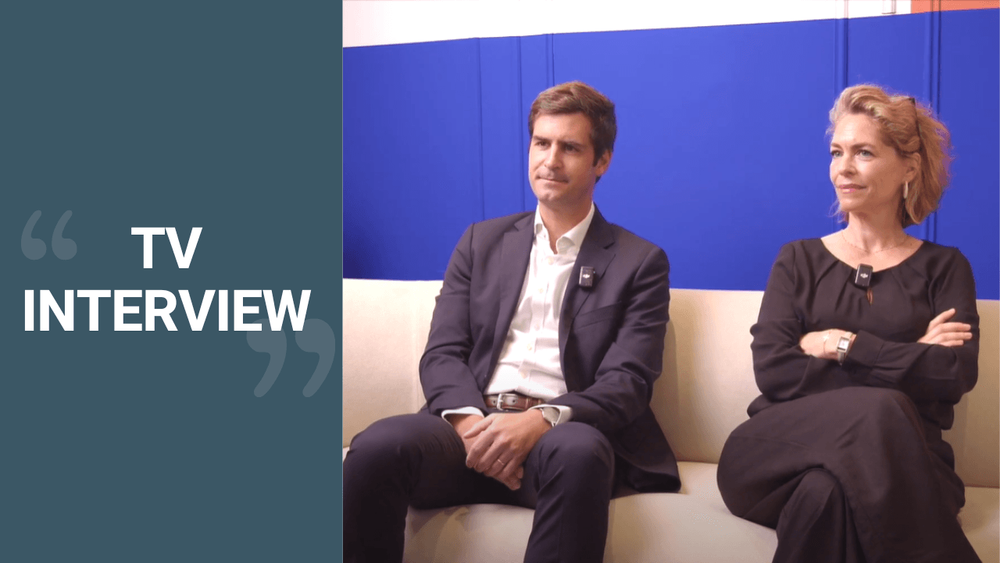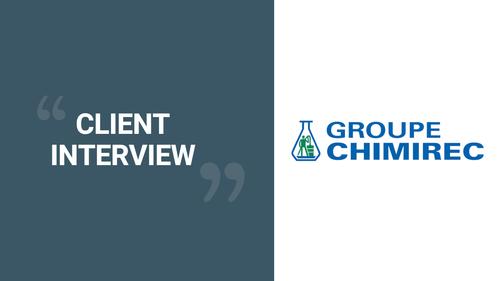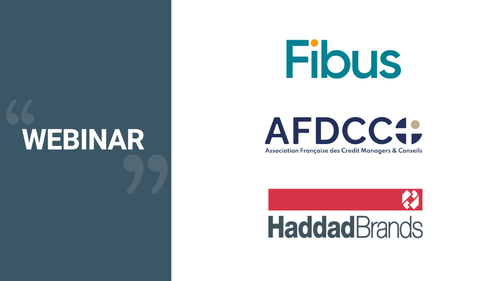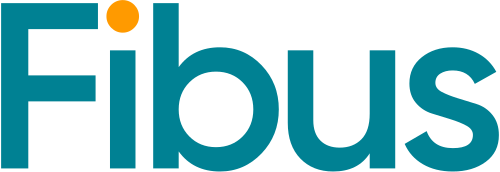Factoring for LBO transactions
Deconsolidating, uncapped, quick to set up and inexpensive, factoring is the perfect financing solution to support the growth of LBO-backed companies.
- For 20 years, Fibus has been supporting private equity funds in France, the UK, Germany and the US.
- Four out of five transactions carried out for LBO-backed companies.


Interview with Diane Roy and Romain Chaufour by CFNEWS
Factoring is a balance sheet financing tool that private equity players do not consider enough in their LBO transactions, even though in many cases it is less expensive to set up than debt and RCF, which it can replace or supplement.
Transcript of the interview:
Bogdan Kowal: Hello and thank you for joining us to discuss factoring with Diane Roy and Romain Chaufour from Fibus, a consulting firm specialising in this area and well known to investment funds since, as you mentioned when you arrived in the studio, you are the only brokers working so actively with LBO funds. Romain, Diane, hello. Thank you for joining us today. Romain, why is factoring so relevant in the context of LBOs?
Romain Chaufour: Well, it's a form of financing that's perfect for supporting growth, whether organic or external, because it's inexpensive, fairly simple to set up and, above all, it's a form of financing that is both deconsolidating, meaning it doesn't impact leverage, and uncapped, meaning it can also support growth in turnover and accounts receivable.
Bogdan: Do you have any specific examples of this?
Romain: Yes, in recent months we have been working extensively with buy-and-build platforms in sectors undergoing consolidation to enable them to integrate this external growth, these build-ups, into factoring programmes. I am currently in discussions with a company that manufactures precision mechanical parts. We set up a €40 million line for France, and there was significant external growth in the United States that we managed to integrate into the programme to double the financing line.
Bogdan: Diane, what types of companies are best suited to factoring today?
Diane Roy: Well, factoring is very simple: you just need to be in B2B and be able to issue an invoice. So it's really a very accessible form of financing. Then there are sectors that are more or less billable, but it's extremely rare that we can't find a financing solution for a company. Then, as Romain said, there are ideal configurations. For example, if you're a company with development projects, whether for organic or external growth, factoring is a really powerful lever. The main thing to remember, I think, is when is the right time to look into factoring. The earlier you factor it into your thinking, the better the conditions will be when the time comes to trigger the financing. To take the example of LBOs, we always advise investment funds to consult us within a year of closing. This avoids the moment when finance teams are extremely busy with highly structured external growth operations. That's the best scenario: anticipation.
Romain: Exactly. We're talking about looking into factoring, not necessarily negotiating or setting it up. It's really about determining the financing potential, what I can get, the approximate cost, the market appetite, and the timing for implementation. At Fibus, we estimate that a factoring line takes between six weeks for a single entity and up to three months for slightly more complex groups. We even have funds that ask us questions before closing, between signing and closing, to say, ‘OK, I'm in the process of buying this group and I want to know if this activity is eligible for a factoring line and how much I can get, how much it would cost me.’ This allows you to anticipate certain issues and negotiate your credit agreement more effectively.
Bogdan: That's kind of the strong point, the speed of execution. You can react much faster.
Romain: That's also the goal of being supported by an expert. It saves time on the set-up side. We know all the players, the points to watch out for in advance on these projects, and we have feedback on what has been done in fairly similar LBO contexts.
Bogdan: And is it complicated to manage on a daily basis?
Romain: Well, we often hear that point.
Diane: Yes, but no.
Romain: So we developed our own software called ARi, which is designed to manage factoring sessions. It's a tool that's available to finance departments. We've found that our customers have already seen a 15% average increase in financing and that the time spent processing sessions has been reduced by a factor of five.
Bogdan: OK, so this software is your strong point today.
Romain: Exactly.
Bogdan: Diane, why Fibus? There are other players on the market. Why you?
Diane: When you're a private equity fund, you have to bear in mind that we've been working with Fibus for 20 years, in fact since the company was founded, and four out of five of the transactions we carry out are for companies under LBO. So we know their challenges, their expectations and their needs inside out. We have a very large team, the largest team in France and Europe dedicated to factoring, which is really our core business, and they know the funds extremely well. Today, we work with around 40 private equity funds in France, but not only that, we also work with many Anglo-Saxon funds, either in London or the United States, as well as German funds, since we opened a subsidiary in Germany last year. This allows us to provide our clients with truly local, extremely close support.
Bogdan: That's what will interest the funds, indeed.
Diane: Yes, absolutely. Today, we do about 50% of our business internationally, in 40 countries. But beyond that, for the finance department, the advantage of Fibus is that we really have something unique to offer. And we have also integrated the two levers for optimising factoring, which are credit insurance and the digital solutions that Romain mentioned a moment ago. These three building blocks enable us to offer our customers financing that is 100% of their capacity as soon as it is put in place.
Bogdan: In any case, you explain it very well. Thank you both.
Diane: Thank you, Bogdan.
Romain Chaufour: Well, it's a form of financing that's perfect for supporting growth, whether organic or external, because it's inexpensive, fairly simple to set up and, above all, it's a form of financing that is both deconsolidating, meaning it doesn't impact leverage, and uncapped, meaning it can also support growth in turnover and accounts receivable.
Bogdan: Do you have any specific examples of this?
Romain: Yes, in recent months we have been working extensively with buy-and-build platforms in sectors undergoing consolidation to enable them to integrate this external growth, these build-ups, into factoring programmes. I am currently in discussions with a company that manufactures precision mechanical parts. We set up a €40 million line for France, and there was significant external growth in the United States that we managed to integrate into the programme to double the financing line.
Bogdan: Diane, what types of companies are best suited to factoring today?
Diane Roy: Well, factoring is very simple: you just need to be in B2B and be able to issue an invoice. So it's really a very accessible form of financing. Then there are sectors that are more or less billable, but it's extremely rare that we can't find a financing solution for a company. Then, as Romain said, there are ideal configurations. For example, if you're a company with development projects, whether for organic or external growth, factoring is a really powerful lever. The main thing to remember, I think, is when is the right time to look into factoring. The earlier you factor it into your thinking, the better the conditions will be when the time comes to trigger the financing. To take the example of LBOs, we always advise investment funds to consult us within a year of closing. This avoids the moment when finance teams are extremely busy with highly structured external growth operations. That's the best scenario: anticipation.
Romain: Exactly. We're talking about looking into factoring, not necessarily negotiating or setting it up. It's really about determining the financing potential, what I can get, the approximate cost, the market appetite, and the timing for implementation. At Fibus, we estimate that a factoring line takes between six weeks for a single entity and up to three months for slightly more complex groups. We even have funds that ask us questions before closing, between signing and closing, to say, ‘OK, I'm in the process of buying this group and I want to know if this activity is eligible for a factoring line and how much I can get, how much it would cost me.’ This allows you to anticipate certain issues and negotiate your credit agreement more effectively.
Bogdan: That's kind of the strong point, the speed of execution. You can react much faster.
Romain: That's also the goal of being supported by an expert. It saves time on the set-up side. We know all the players, the points to watch out for in advance on these projects, and we have feedback on what has been done in fairly similar LBO contexts.
Bogdan: And is it complicated to manage on a daily basis?
Romain: Well, we often hear that point.
Diane: Yes, but no.
Romain: So we developed our own software called ARi, which is designed to manage factoring sessions. It's a tool that's available to finance departments. We've found that our customers have already seen a 15% average increase in financing and that the time spent processing sessions has been reduced by a factor of five.
Bogdan: OK, so this software is your strong point today.
Romain: Exactly.
Bogdan: Diane, why Fibus? There are other players on the market. Why you?
Diane: When you're a private equity fund, you have to bear in mind that we've been working with Fibus for 20 years, in fact since the company was founded, and four out of five of the transactions we carry out are for companies under LBO. So we know their challenges, their expectations and their needs inside out. We have a very large team, the largest team in France and Europe dedicated to factoring, which is really our core business, and they know the funds extremely well. Today, we work with around 40 private equity funds in France, but not only that, we also work with many Anglo-Saxon funds, either in London or the United States, as well as German funds, since we opened a subsidiary in Germany last year. This allows us to provide our clients with truly local, extremely close support.
Bogdan: That's what will interest the funds, indeed.
Diane: Yes, absolutely. Today, we do about 50% of our business internationally, in 40 countries. But beyond that, for the finance department, the advantage of Fibus is that we really have something unique to offer. And we have also integrated the two levers for optimising factoring, which are credit insurance and the digital solutions that Romain mentioned a moment ago. These three building blocks enable us to offer our customers financing that is 100% of their capacity as soon as it is put in place.
Bogdan: In any case, you explain it very well. Thank you both.
Diane: Thank you, Bogdan.
These articles may interest you

How Chimirec unlocked the full potential of its factoring with ARI Trade, by Fibus Digital
With ARI Trade, the Chimirec Group has reduced the time spent managing its factoring operations from 4 days to 1.5 days per month — representing a total time saving of 30 days per year.
Additional benefits for Chimirec’s CFO include improved working capital, a consolidated view across 15 factoring contracts, and enhanced receivables traceability.
Additional benefits for Chimirec’s CFO include improved working capital, a consolidated view across 15 factoring contracts, and enhanced receivables traceability.

How the Credit Manager safeguards the company’s cash flow
A function at the heart of financial stability The Credit Manager’s role extends far beyond preventing bad debt: today, they act as the true conductor of the order-to-cash process, ensuring the company maintains healthy, predictable, and actively managed cash flow. We
spoke with Thibaut Robet, CEO of Fibus, a firm specialising in order-to-cash management.
spoke with Thibaut Robet, CEO of Fibus, a firm specialising in order-to-cash management.

How can credit insurance support growth in a sector under pressure?
Economic difficulties are mounting and weighing more heavily on certain sectors: how can you make the Credit Manager a business partner who supports the company's growth? Discover the testimony of HADDAD BRANDS EUROPE in the webinar hosted by Alexia Monteillet, Credit Risk Manager at HADDAD BRANDS EUROPE, and Marc Chaquès, Credit Insurance Director at Fibus, in partnership with the AFDCC.
Contact us, so that, together, we can find the best solution for financing your accounts receivable.
Write us
